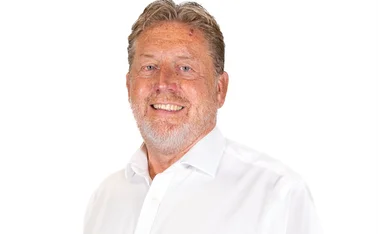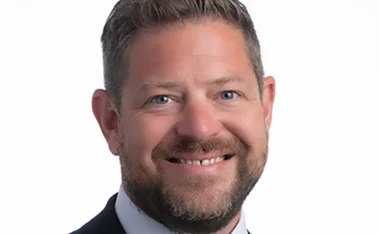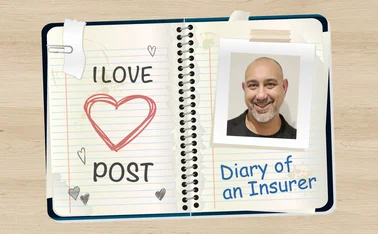
Blog: When is a professional not a professional?

Many organisations seek to employ professionals assuming they have the characteristics to bring reputational premium to organisations. However, being professional goes beyond having a certificate
As American founding father Benjamin Franklin put it “it takes many good deeds to build a good reputation and only one bad one to lose it”. Organisational reputation reflects human action and for this reason organisations seek employees who possess characteristics that contribute to a reputation build.
However, most organisations seek professionals as the assumption is that a professional has characteristics that can bring a reputational premium to organisations. This may not always work, as seen in the case of the rogue trader Nick Leeson who brought about the collapse of Barings Bank. An interesting quote from Kazuo Ishiguro’s Remains of the Day sums up a negative perception of a professional “What is more, sir,” his lordship went on, “I believe I have a good idea of what you mean by ‘professionalism.’ It appears to mean getting one’s way by cheating and manipulating. It appears to mean serving the dictates of greed and advantage rather than those of goodness and the desire to see justice prevail in the world. If that is the ‘professionalism’ you refer to, sir, I don’t care much for it and have no wish to acquire it”.
Yet the perception of “being a professional” conjures up words such as integrous, industrious and competent. The problem is that the perception of professionalism is highly contextual. So, for example, professional bodies see certification as proof of being a professional. Organisations, on the other hand, create standards of behaviour and processes that create so called compliant professionals who operate to the level of the standards more so than at an optimal level.
This begs the question as to what is really called for in professional behaviour? Research indicates that there are, in effect, only two important factors that enable “being a professional”. Those are the ability to enable trust and having emotional intelligence.
Enabling trust
Enabling trust is a tough want as organisations and, particularly financial services organisations, are looked upon with suspicion by their customers. The PwC 2016 Global CEO Survey found that 55% of CEOs see a lack of trust as a threat to organisational growth and reputation. In the 2018 survey, the chairman of PwC Bob Moritz stated that “in an age of enhanced transparency and heightened accountability, a loss of trust has profound consequences”.
The momentum of trust lies firmly with senior management. As Peter Drucker, management guru once said: “Leadership is an achievement of trust.”
So how can leaders or senior managers enable trust. Again, there are two main ways.
First, lead by example. This is all about not one example but a series of examples which demonstrate sustainable trust building and success. When trust is broken it is difficult to revive. William Shakespeare (Henry VI part 3) stated: “For trust not him that hath once broken faith”.
Second attract followership. Followership will happen if others feel and see that they can trust the organisation by its reaction to them and that they play fair. For example, insurance companies not supporting their loyalty policyholders, for whatever profit formula, can lose trust or operate in a highly soft and untrusting market of diverters rather than followers and can suffer reputational consequences.
Having emotional intelligence
The act of knowing, understanding, and responding to emotions, managing stressful situations on the spot, and being aware of how words and actions affect others, is what is called emotional intelligence. Emotionally intelligent persons tend to attract followers as they are assumed to be rational and secure people to deal with. Studies on EQ indicate that persons with high EQ are generally high performers with a high level of self confidence in their abilities.
Therefore, it is not the professionalism of a person that matters but the perception of professionalism that is important. Organisations, therefore, need to seek not a professional but persons capable of enabling and sustaining this perception. Once perceived professionalism is set only then will trust and professionalism become an embedded concept within the organisation and consequently helps toward a more sustained positive reputation.
Only users who have a paid subscription or are part of a corporate subscription are able to print or copy content.
To access these options, along with all other subscription benefits, please contact info@postonline.co.uk or view our subscription options here: https://subscriptions.postonline.co.uk/subscribe
You are currently unable to print this content. Please contact info@postonline.co.uk to find out more.
You are currently unable to copy this content. Please contact info@postonline.co.uk to find out more.
Copyright Infopro Digital Limited. All rights reserved.
As outlined in our terms and conditions, https://www.infopro-digital.com/terms-and-conditions/subscriptions/ (point 2.4), printing is limited to a single copy.
If you would like to purchase additional rights please email info@postonline.co.uk
Copyright Infopro Digital Limited. All rights reserved.
You may share this content using our article tools. As outlined in our terms and conditions, https://www.infopro-digital.com/terms-and-conditions/subscriptions/ (clause 2.4), an Authorised User may only make one copy of the materials for their own personal use. You must also comply with the restrictions in clause 2.5.
If you would like to purchase additional rights please email info@postonline.co.uk







